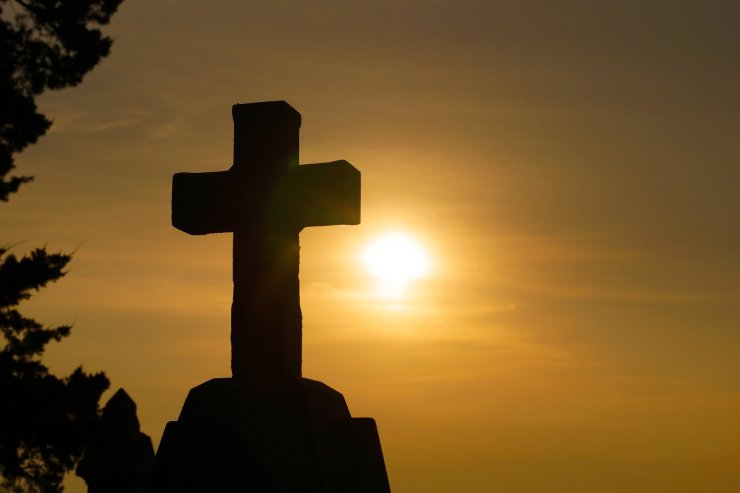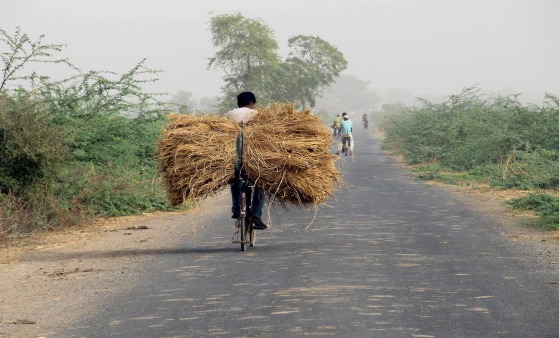
The local villagers in Chhattisgarh pushed twenty families, totaling 70 to 100 members of a church, to renounce their faith and adopt a tribal religion during the first and second weeks of January 2024, according to reports.
The pastor of Tirathgarh village in the Bastar district, Prem Das Andhkuri, told Christian Today that 20 of the 50 households in and around the area—including five from Tirathgarh itself—converted to the tribal faith in early January after experiencing severe exclusion for six to seven months.
“The situation is very sensitive here. The exclusion is extreme, leaving the believers with no option but to submit to the villagers’ demand,” expressed Pastor Andhkuri, who was troubled by the growing persecution of believers through exclusion.
According to the pastor, the villagers who had coexisted happily for several generations had all of a sudden begun to protest to one another's Christian beliefs.
The ostracising trend is the same in Tirathgarh and a few other nearby villages.
Pastor Son Singh Andhkuri, Andhkuri's father who passed away a few years ago, established six churches in various areas. According to his son, he founded the first church in Tirathgarh 32 years ago.
“All but two churches are completely shut down because of severe persecution in various forms, including ostracism,” according to Andhkuri.
It all started slowly during the Covid-19 lockdown, said the pastor, adding that “Several groups began to be formed in the village and the people who led their respective group were targeted by the right-wing Hindu extremists and were polarised against the Christian believers of the village. After the lockdown was over, we noticed a sudden change in their behaviour towards us and they began to ostracise the believers.”
The pastor claimed that throughout the past seven months, the ostracism, which had occasionally lessened, has gotten worse.
According to a Christian leader who requested anonymity, “The Hindu right-wing groups are behind this.”
“Earlier, the Vishwa Hindu Parishad and Bharatiya Janata Party leader, Dilip Singh Judeo, used to pressurise the Christians to convert to the Hindu faith. Now they have changed strategy and instead use the Tribal elders by brainwashing them against Christian tribals who have followed the Christian faith for decades but have maintained their tribal culture. Thus, they have successfully fractured the tribal society into tribals and Christian tribals. Now the tribal leaders are up against their tribal brothers and sisters who follow Christ and ostracise them. Meanwhile, the tribal elders, influenced by Hindu right-wing groups, bring political dividend for the BJP. It is a well thought of and well-funded process,” the Christian leader explained.
It is forbidden for believers to use the village's government-supplied water. They were forcibly stopped from gathering water as they set out to walk the two miles to the stream in order to get it for their daily needs.
For the past six months, Andhkuri's neighbour, a Christian family, was denied access to the village's shared water supply. They manage to survive by collecting water from Andhkuri's own bore-well.
“Not so with other Christian families who live at a considerable distance,” said Andhkuri. “Some are physically not fit to fetch water from far away, some are too old and do not have help. Besides, water is a necessity, and nobody can do without proper access to water.”
The locals who were persecuting the Christian family took control of their fields, which were ready to be harvested. As a result, the Christian families had nothing to eat for the entire year.
“They have been taught to think that when we convert to Christ, we become impure in their sight and, therefore, we should not touch the agricultural land,” said the pastor.
The farmers of the village take tractors and grain threshing machines on rent during harvest. “No Christians were given the machines on rent, and we all suffered a lot this year during harvest season,” Andhkuri added.
The locals have voted that any non-Christian who sells items to Christians must pay a fee of 5,000 Rupees. As a result, the Christians must travel two to four kilometres in order to shop for groceries and other necessities for their daily lives at the weekly markets.
Tirathgarh is a popular tourist destination that is most recognized for the spectacular Tirathgarh Waterfall.
According to Andhkuri, a family had a small company in Tirathgarh that was forced to relocate by right-wing organisations.
Village believers who had previously enjoyed blessings in their homes as a result of their hard labour and faith suddenly felt constrained on all sides.
“Our Christian families were doing very well for themselves. They were educating their children, and instead of indulging in substance abuse and alcoholism, they had started small businesses and were prospering in it,” said the pastor.
“After patiently resisting, persevering in their hardships and pressing on, 15 families in the first week of January and 5 in the second week decided under much pressure to recant their Christian faith and convert to their ancestral faith,” according to Andhkuri.
The tribals are from Dhruva, Gond, Mahara (SC) backgrounds.
The "return" of the Christian is celebrated ceremonially in public, and each family and person is subjected to a ceremony as a representation of their "return." A witch doctor called Dev Bhoot is brought into each family's home and spirits of tribal gods are invited in to assume leadership of the household. Ceremonial water is splashed upon them as a means of cleansing.
Several of these families that have abandoned their religion were Christians for the previous 20 years, Andhkuri told Christian Today.
Andhkuri lamented that despite the Christians' repeated approaches to the police with their complaints and frustrations, the police never once intervened.
And since these Christians have reverted to their original faith, they have to worship the same gods as the peasants and follow their customs in order to blend in.
“Their hearts too are getting weak,” said the pastor in reference to the thirty families who are still under pressure to renounce their Christian beliefs. “They need a lot of courage to continue to persist and the situation is quite tense.”
The area of Bastar exudes a sense of terror. Rejecting their faith is not something that Christians tell their pastors or other Christian acquaintances about; rather, it is a silent departure from Christianity.
Churches are closed all together. While some people pray over the phone, others congregate at a friend's house to pray in private.
“We do not know each day, as to who will recant their faith,” pastor Andhkuri worries .
The villagers employ the extended families of non-Christian believers as a means of coercion to make the believers renounce their beliefs. The locals band together with these non-Christians and employ every tactic, including physical attack, to coerce them into renouncing their Christian beliefs.
Because the extended family is involved, when the Christians ask the police to get involved, they label it a family dispute and take no action about the complaint.
When Andhkuri phoned the local police station during the second week of January, the policeman who answered said that Christians need to comply with what the locals were requesting.
“We are somehow holding on, I cannot say for how long we will be able to hold our ground,” Pastor Andhkuri concluded.




